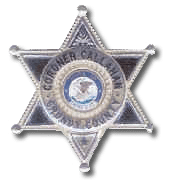Coroner FAQ
(Click the plus sign to expand and read answers)
Can I come see him/her?
Seeing your loved one at the funeral home is a more appropriate atmosphere than the morgue. However, exceptions are made to ease the pain of a grieving family, or in some cases it would be for identification purpose.
Can I contact the Coroner’s Office?
Certainly. You may call 815-942-3792 between 8:00 am and 4:30 pm, Monday-Friday or leave a message on the answering machine. The Coroner’s cell phone is 815-405-1210 and that number may be called at anytime. For questions of interest that pertain to forensic death investigations, you may email the coroner at [email protected] .
Is an autopsy always performed?
Not always. If the death is a “Natural Death” and the deceased has a physician who knows the medical cause of death and will furnish the Coroner with acceptable cause, the Coroner will normally not order an autopsy.
Is there a charge for these services?
No.
What about funeral arrangements?
Making that initial call to the funeral director is very difficult. If you advise the Coroner’s Office of your preference of funeral home, we will make the call for you. Your funeral director will then coordinate further arrangements with the Grundy County Coroner’s Office and help you begin the preparations for your loved one’s funeral.
What Are Inquest Cases?
What Happens During a Coroner's Investigation?
If the victim is deceased at the scene, he or she remains at the scene until such time when removal will not jeopardize the critical scene processing. This can be difficult for family members who want their loved one tended to as quickly as possible. Every effort is made to remove the victim from the scene as soon as possible. Each death scene and circumstances related to the death are unique and may require special considerations. Investigation should also occur when a death is investigated and the physician does not agree to certify the death. A temporary death certificate is filed with the local registrar at the Grundy County Clerk’s Office until the permanent is ready to be filed. After the investigation is completed and if it is determined the death was of natural causes, the Coroner signs and files the permanent death certificate with the local registrar. However, if during the investigation it is determined that the death was not of natural causes or there are unusual circumstances, an inquest will then be scheduled. Then the funeral director will be notified and the permanent death certificte will be filed after the completion of the inquest.
Follow-up Investigation
As part of any death investigation, the Coroner’s Office must gather information. This includes asking questions which may be painful and upsetting to family members and friends. It may also include collecting a variety of evidentiary items. As painful and upsetting as these questions and procedures may be, please keep in mind they are necessary and required in a death investigation. If there is something the Coroner’s Office can do for you to minimize the pain of this process, such as calling a friend or family member, please let us know.
Where is my loved one being taken?
Your loved one may be transported to the Grundy County Coroner’s facility. This laboratory facility is where we will perform a medical examination on the deceased.
Why are autopsies performed?
There are a number of reasons autopsies are performed. However, the basic reason is to determine the medical cause of death. Another primary reason is to gather evidence for presentation in a court of law.
Why is the Coroner involved in the death of my loved one?
- Suspected Sudden Infant Death Syndrome
- Physician unable to state cause if death
- Known or suspected homicide
- Known or suspected suicide
- Death involving any criminal action
- Related to or following known or suspected self-induced or criminal action
- Following an accident or injury (primary or contributory). Deaths known or suspected as a result in whole or in part from or related to an accident or injury whether old or recent
- Drowning, fire, hanging, gunshot, stabbing, exposure, acute alcoholism, drug addiction, strangulation, aspiration or malnutrition
- Accidental poisoning (food, chemical, drug, therapeutic agents).
- Occupational diseases or occupational hazards
- All death where patients are under anesthesia
- All death of unidentified persons
By far the largest segment of deaths investigated by the Coroner are determined to be natural. Natural deaths include people who have no attending physician to sign the death certificate. It is also composed of those individuals who die suddenly and unexpectedly, even though a physician has seen them recently. They include individuals who have affected their health by the use of drugs or alcohol. All deaths of inmates while incarcerated or when the eventual cause of death is found to have originated while the victim was incarcerated are types of deaths that are investigated by the Coroner. Deaths of individuals who die of disease that might constitute a threat to public health are reviewed. The Coroner must review deaths of persons whose bodies are to be cremated, buried at sea, transported out of state, or are otherwise unavailable for pathological study. Deaths of transplant surgery donors that are the result of some type of trauma are reviewed.

